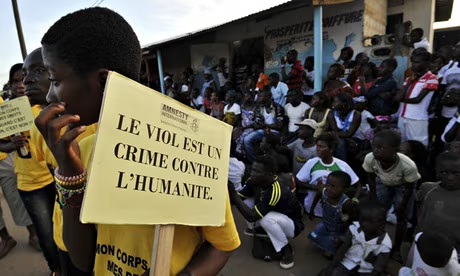45th Session of the African Commission on Human and Peoples’ Rights, 13-27 May Banjul, The Gambia.
Statement on Grave and Massive Violation of the Right to Housing and Shelter in N’djamena. 45th Ordinary Session – 13th- 27th May 2009, Banjul, The Gambia.
The Institute for Human Rights and Development in Africa (IHRDA) would like to bring to the attention of the African Commission on Human and Peoples’ Rights (the African Commission) the serious and massive violations of the right to housing and shelter in N’djamena, the capital city of Chad. This is the result of a campaign of massive forced evictions.
From February 2008 to date, over 30,000 people were forcibly evicted from their homes and thousands of families are living under constant threat of forced evictions in N’djamena. After the attempted coup d’Etat of 02 February 2008, a Presidential Decree1 was issued, authorising the forceful eviction of Gardolé and Walia, two neighbourhoods of N’djamena.
The presidential decree[1] implicitly asserted that Gardolé and Walia were government property. Yet some eviction victims had valid title deeds. Compensation given to evictees was inequitable and in most cases, less than the value of the property lost.
Other neighbourhoods not specified in the decree were also subjected to these forced evictions, which began even before February 2008. As of April 2008, 1,798 compounds in 11 different neighbourhoods were destroyed. No eviction notices were issued, save for the neighbourhoods mentioned in the decree. Further, the evictions were coupled with cruel and inhuman treatment of the victims who were desperately attempting to salvage their belongings. Although the Chadian government insists that the forced evictions are within the framework of an urbanisation plan, victims contend that some cases may be politically motivated.
Despite a court injunction[2] in favour of inhabitants of Repos I (section 41 and 42), plaintiffs were evicted. Reparations ordered by the Court of Appeal of N’Djamena[3] were ignored.
Thousands of families left homeless live in deplorable conditions. The Chadian government has shown no willingness to either adequately compensate victims or respect court orders.
The African Commission has held in Communication 155/96 Social and Economic Rights Action Centre (SERAC) and Center for Economic and Social Rights (CESR) v Nigeria that:
The particular violation by the Nigerian Government of the right to adequate housing as implicitly protected in the Charter also encompasses the right to protection against forced evictions … Wherever and whenever they occur, forced evictions are extremely traumatic. They cause physical, psychological and emotional distress; they entail losses of means of economic sustenance and increase impoverishment.[4]
The series of described forced evictions represent a clear violation of the African Charter as well as Chad’s own Constitution of 1996 whose articles 12, 17, 19, 37, 41, and 43 protect the right to security, the right to family welfare and the right to property. These evictions also violate the Chadian land laws of 1964.
IHRDA urges the government of the Republic of Chad to:
- Immediately cease any forced evictions of N’djamena residents and halt any plans to carry out further evictions;
- Respect the Chadian land laws of 1964 in matters of compulsory land acquisition in the public interest which guarantee rights and adequate compensation;
- Respect the injunctions and rulings by competent courts ordering compensation;
- Recall the decision of the African Commission in communication 74/92 Commission nationale de droits de l’homme et libertés/Chad that exceptional circumstances such as a state of emergency cannot be a justification for human rights violations;
- Take legislative measures as required by article 1 of the African Charter to eliminate forced evictions and to lay down guidelines for any evictions should they be absolutely necessary and inevitable. Such guidelines should be in accordance with the African Charter, the International Covenant on Economic, Social and Cultural Rights, and the ‘Basic Principles and Guidelines on Development-Based Evictions and Displacement’ adopted by the United Nations Human Rights Council in 2007.





